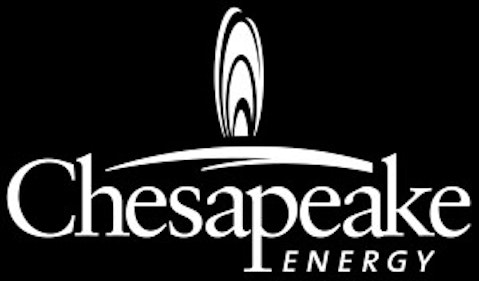
Chesapeake experienced one of the toughest periods since inception, with distressed balance sheets and court battles with land owners, among other exciting events. Additionally, Aubrey McClendon established a polarized relationship between the board and shareholders, which contributed to his resignation. The outgoing CEO was also ranked one of the worst CEOs in 2012.
The company invested heavily in shale gas exploration, which subjected it to high levels of debt. In an attempt to revamp cash flows, Chesapeake approved sale of fixed assets valued $14 billion. The company managed $11.6 billion by close of 2012, coming short of the targeted $12 billion. McClendon’s exit is expected to fast track the process, with the board and shareholders in tandem.
Chesapeake Trails Exxon and Chevron, But Holds A Bright Future
Chesapeake has not been all bad, even during the reign of McClendon. The oil and gas company managed to feature in the U.S top 100 places to work in six consecutive years, emerging 26th in 2012. But can we say that for the value of the stock? While it trails Exxon Mobil Corporation (NYSE: XOM) (market cap $402 billion) and Chevron Corporation (NYSE: CVX) (market cap $225.5 billion) in terms of market share both globally and locally, Chesapeake (market cap 13.18 billion) provides one of the most promising prospective stocks in the energy sector.
Nonetheless, it still trails the duo even in terms of prospects, with Exxon already poised to become the world’s most valuable company, and having reported earnings that nearly broke the world record in its most recent full year results. The company reported earnings that missed its 2008 record of $45.2 billion by just $300 million. On the other hand, Chevron has embarked on an aggressive capital investment across the globe as it seeks to bolster its oil exploration portfolio. The company has set aside $37 billion to actualize that goal.
So, what about Chesapeake? Well, the Oklahoma-based company is looking to minimize the risk attached to its stock by clawing back some cash from the sale of fixed assets. Chesapeake Energy is often referred to as America’s champion of natural gas, a form of energy seen as the future of fuel, due to its environmental friendliness. While I do not mean to indicate that oil dependent companies are doomed, Chesapeake’s long-term future remains bright, if indeed it manages to stay a step ahead of its rivals in natural gas exploration.
Chevron currently has a trailing 12-month PE of 8.66x, while Exxon trades at 9.21x. On the other hand, Chesapeake Energy Price to Earnings ratio remains inapplicable. However, the forward price to earnings ratio indicates that Chesapeake is expected to report profits with an expectation of 16.89x in PE ratio. However, rivals Exxon and Chevron have forward PE ratios of 10.73x and 9.25x, respectively, making them cheaper than Chesapeake.
The (McClendon) Effect
The good news for Chesapeake is that McClendon, who managed to dispose of assets worth $30 billion during since 2008, is now leaving the company. This is expected to strengthen the relationship between the board and shareholders, making it easy to pass constructive decisions. Many had feared that Chesapeake would struggle selling more fixed assets in the current campaign had McClendon stayed on.
One major example is the manner in which the stock reacted following the news of his resignation. The stock surged 11 percent, which indicated a positive expectation from investors, and increased confidence in the company.
Did They Play a Role?
The company’s major investors include value investor Carl Icahn, who reportedly owns about 7.5 percent of the company. Icahn is also known for his activist investment strategies, which include influencing board changes. When he bought a stake in the company in May 2012, Icahn suggested the replacement of four senior executives in the company.
Another major holder is value investor Daniel Loeb, whose stake is in the form of debt. Loeb’s Hedge fund, Third Point is one of the best performing hedge funds. The fund hit a new record in January, rising above $11.2 billion worth of assets under management, after it added $1.1 billion between Jan. 1 and Jan. 31. Reports suggest that Southeastern Asset management and Carl Icahn played a major role in McClendon’s departure.
Bottom Line
It remains to be seen whether the newly reconstituted board can go one step better than the initial team, whose reign ends with the departure of McClendon. Board tussles are never good for any company, efficiency comes to question. Chesapeake must raise the remaining $2+ billion from the sale of assets, which will reduce the tension on its balance sheet. The company recently received an upgrade from BMO Capital Markets following the news about McClendon from Market Underperform to market perform with a price target of $24. Other firms also increased price target for Chesapeake to about $25.
The article Is Chesapeake Energy Better Off Without McClendon? originally appeared on Fool.com and is written by Nicholas Kitonyi.


